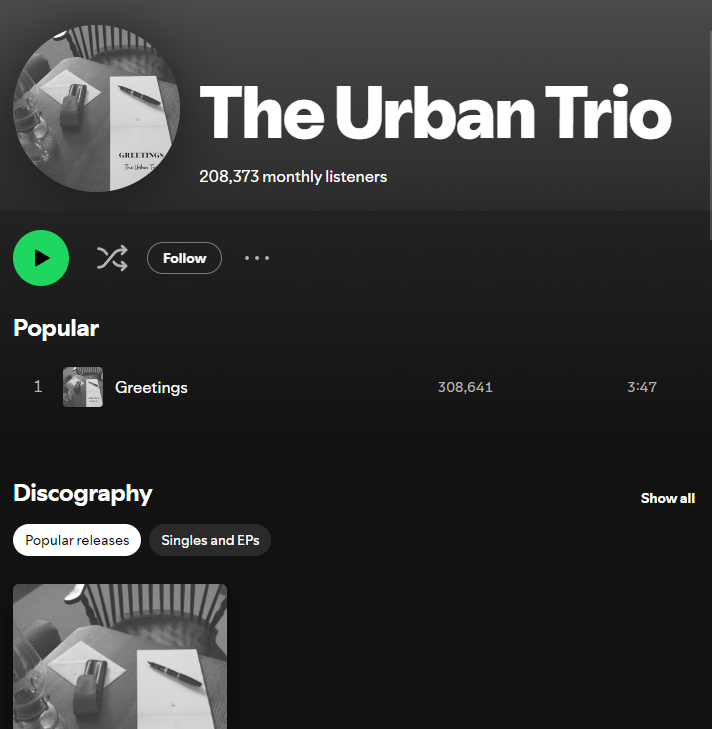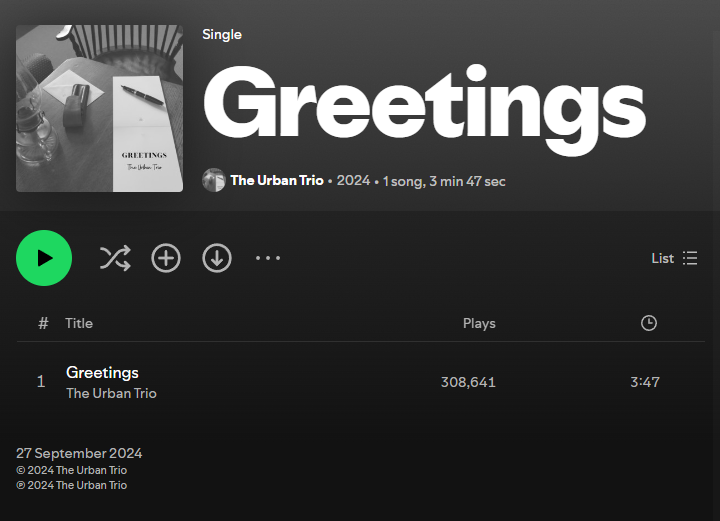It’s nothing new for people to lie on the internet. Internet 101 stresses the fact that people lie, and you shouldn’t completely trust anyone you only know from online. While the lying presented by internet safety lessons tends to skew on the side of individuals being disingenuous, the widespread accessibility to spread influence has also allowed larger corporations to lie online. As with many things, lying has always been a problem, which has been exacerbated by the online medium which allows for anonymity, widespread influence, and little to no accountability.
The ease in which content can be created has now begun to allow for the creation and spreading of content which is not transparent about its origins. Many music streaming services such as Spotify and Amazon music, for a couple years, have been fighting accusations of having ‘fake artists’ populating algorithmically created playlists. These fake artists are usually in the mood music side of the industry, creating music that’s for the large population of users who “just want something chill to listen to and could not be bothered what artists will be part of the session.” (source) A few real artists will create multiple ‘fake artist’ accounts to release their music under terms which will be put into these mood music playlists, thus allowing for many streams.

Image of one of the mood music playlists. This one is a jazz playlist. Not ‘The Urban Trio’ which shows signs of being a ‘fake artist.’

When looking closer at The Urban Trio, note how there is only one track from this year.

For being the first track of the artist with only one track, there is a surprising amount of plays, especially when compared to other ‘real artist’ with backlogs of music.
A common thing is for these fake artists to have very few tracks or albums to their name, with very diverse numbers of plays. One track might seem very popular and have many thousands or even millions of plays. On the other hand, other tracks might have no plays (not enough to be shown) or a much lower number. Normally, ‘real artists’ will have a relatively even spread of plays per track in an album. While some tracks are naturally more popular, the difference between plays on different tracks are not that disparate.
In regards to user generated playlists, these artists rely on gaming the algorithm and swamping the genre with their music in order to be put into these playlists and therefore have their music be streamed. However, for playlists which are pre-curated, the streaming platform themselves might be the ones who are utilising these fake artists in order to gain some money from streams. They have been theorised to hire musicians to create music under various accounts for this purpose.
Some might say that the only people who stand to lose are older, more traditional musicians who feel that the meaning of music is being stripped from the music, thus rendering the music as less significant or worthwhile then more ‘authentic’ music. However, there are more people who might stand to lose. It could be said that other ‘authentic’ musicians lose places and streams due to the overpopulation of fake artists. This relies on the assumption that if the fake artists did not exist, their listeners would stream these ‘real’ musicians. At the end of the day, ‘fake artists’ are not entirely fake. There are musicians behind them, of varying degrees of skill, who are creating music in order to make ends meet. Is it really our place to judge these people who are simply utilising and taking advantage of the tools at their disposal to survive?
Sources:
An MBW reader just blew open the Spotify fake artists story. Here’s what they have to say.
Swedish Musicians’ Union Calls On Spotify to Investigate ‘Fake Artists’ Amid Playlist Controversy




Interesting point of view! I noticed that some people will buy comments, clicks, followers, etc., especially in this era where internet traffic equals money. But I’m wondering if the platform can detect this dishonest behavior. I know that in some platforms, people are cheating the algorithm, but at the same time, the platform side is updating the algorithm to test it. I hope Spotify has the same technology to protect the real musicians.
Interesting find. I think that with the fact that streaming pays so little, in an already very financially insecure field of work i get that people try gaming the systems in this way. I personally don’t think its a great thing that this happens but it seems to me as just one more instance of the music industry preying on vulnerable musicians to make a quick buck.
It’s fascinating (and a bit disheartening) to see how streaming platforms have created a space where this kind of practice can thrive. The idea of platforms themselves possibly curating playlists with these “fake artists” is especially concerning, as it raises questions about transparency and fairness in the industry.
I think your point about the ethical gray area is really important. On one hand, it feels like these practices harm “authentic” musicians who are already struggling to get noticed. On the other, it’s hard to fault the individuals behind these tracks for doing what they can to make ends meet in an industry that often pays so little per stream.
It also makes me wonder about the broader implications for listeners. Does the rise of “fake artists” dilute the listener experience, or is it just the natural evolution of music consumption in the algorithm-driven era? Either way, it feels like there’s a fine line between innovation and exploitation here.